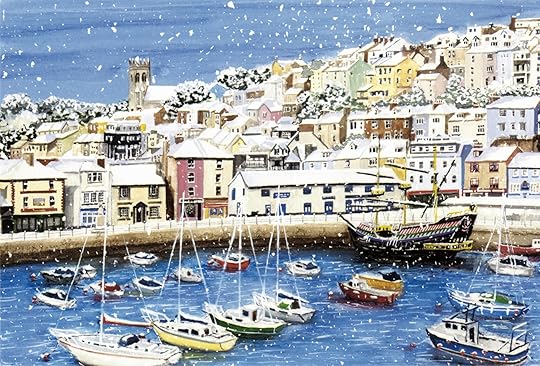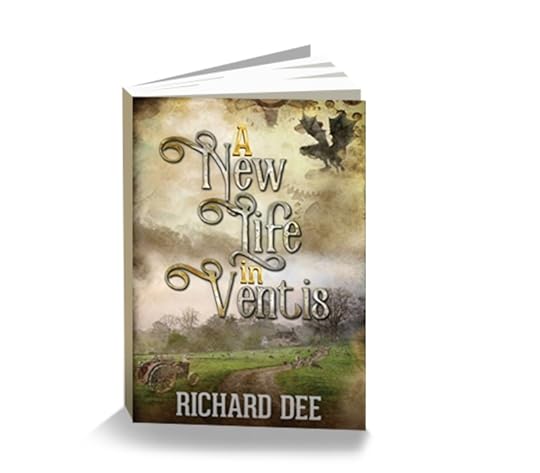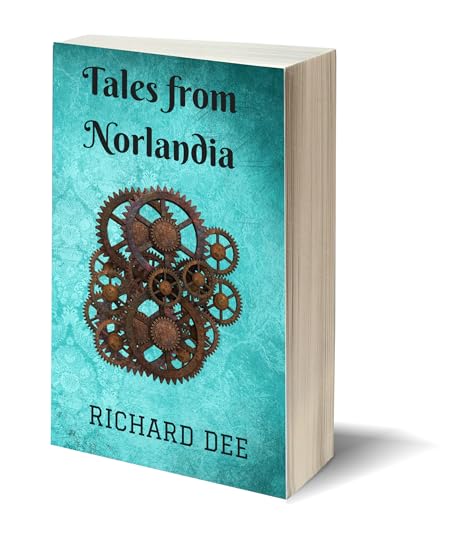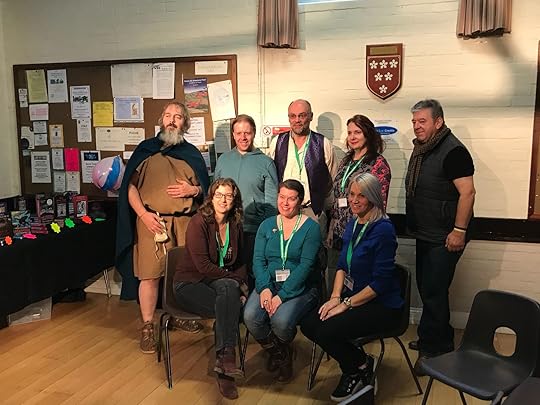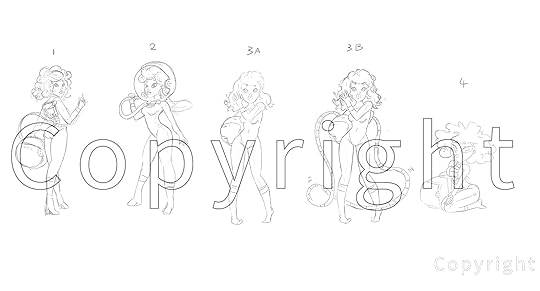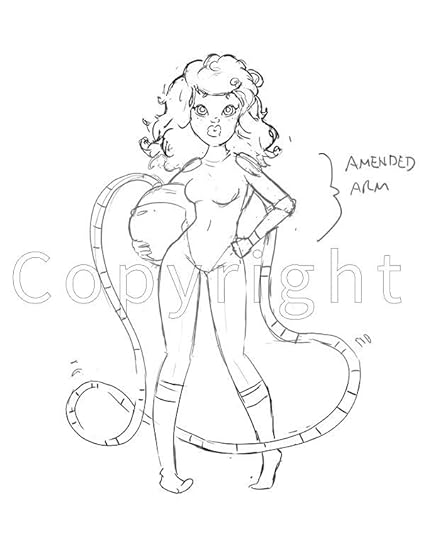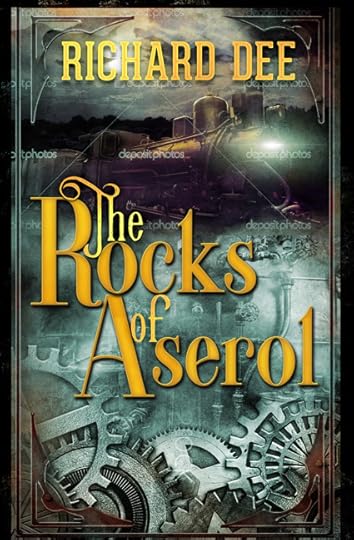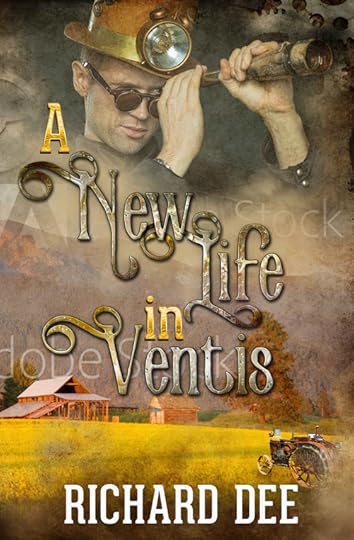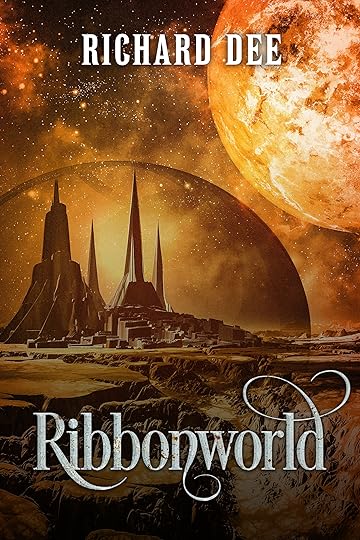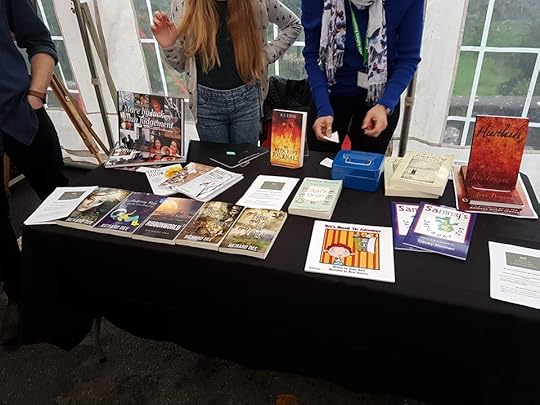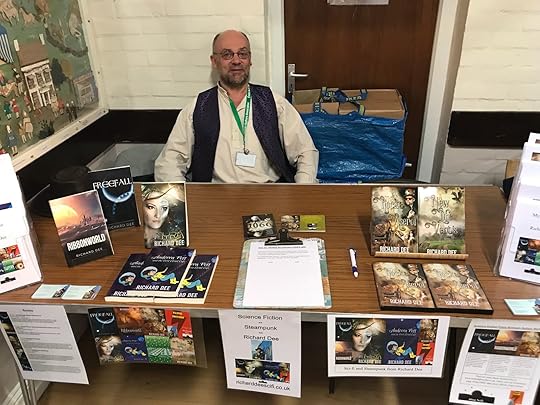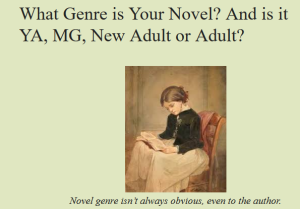Richard Dee's Blog, page 93
December 24, 2017
Seasons Greetings from Brixham
December 17, 2017
Reflection, 504,000 words later!
This will be my last post of 2017; next Monday is Christmas Day, the Monday after that will be Jan 1st, 2018.
It’s that time of year when we all look back and try to make sense of everything that went on over the last twelve months. I’m no different; I said that I would do a lot of things in 2017. How did I measure up?
Firstly, I told myself that I would write 500,000 words in 2017. And the amazing thing is that I managed to do it. In fact, the milestone was reached in compiling this post. I think that could be the first New Year Resolution that I’ve actually managed to keep. And I completed NaNoWriMo as well, the third time I have done so.
So what were all those words about? Well, I finished some exciting projects, started a few new ones and wrote a lot of short stories. They mainly came as a result of research and the background work that every novel requires. I end up with so much information and sub-plot that doesn’t fit into the story that it always seems a shame not to do something with it.
I published five books in total in 2017, four novels and a collection of short stories.
In March, Myra, the prequel to Freefall was published
and in June, after a lot of persuasion and encouragement, Andorra Pett made her first appearance in the Oort Cloud Café.
Then in October the sequel to my steampunk tale The Rocks of Aserol, titled A New Life in Ventis was launched at the Bampton Charter fair.
One of the first copies was bought by a 92-year-old man, who saw the cover, read the sample and said that it reminded him of his childhood. In the end, he purchased both books and I really hope that he enjoyed them.
Those three were both paperback and eBooks; I also released the sequel to Ribbonworld, called Jungle Green, plus a collection of Steampunk short stories called Tales from Norlandia as eBooks. If sales of them are good, I will add paperbacks in due course.
I got some good reviews for all my work, I don’t want to mention them all here but I was pleased to see that (in general) people like what I’ve written.
I had two old titles that I wanted to revamp and re-issue, I managed to get one sorted, the other one will be done this year, fingers crossed. To do that, I had to part company with my publisher and became fully self-published. It was a big step and one that I agonised over, but it also gave me the opportunity to redesign all the back matter in my books, updating it all with links to my new work and extra information.
I’ve also expanded the social side of my writing, joining the Exeter Authors Association, a lively group that meets monthly and is getting me and the other members involved in events. I’ve given talks at libraries and societies, attended pop-up shops and next year will start exhibiting at Sci-fi conventions. Starting off at Devcon Exeter in February.
I have three completed novels ready for editing; the first will enter the production process in January. If all goes well, it will be published around the end of April.
As for the others, I have plans for them. They have both been entered in several competitions and open submissions, so we will have to wait and see what reaction they get before I decide what their fate will be. Even if they attract no attention from the literary world, rest assured that they will be published, because I like them, as do my select group of beta readers.
Which all leaves me with a problem. Which project shall I work on next? I also want to improve my social media presence, complete my world-building course, and finish my half completed novels. I don’t intend to formally commit myself to writing a set number of words next year, I’ll just see how it goes.
And that’s it for the year from me, I will be back with a new format to my posts after the holiday.
So, it only remains to wish you all a happy Christmas, or whatever you wish to call it. And of course, all the best for 2018.
The post Reflection, 504,000 words later! appeared first on Welcome to my Worlds..
December 10, 2017
Not featuring on a shortlist today is:-
A bit of a lazy post this week, but I feel that I’ve earned it.
As I said to you before, I have entered a few competitions recently, I recently learned that the story that I’m going to share with you this week was NOT shortlisted in one of them. Now I suppose that I could always save it for another go somewhere else but I can’t really see the point.
This one is my attempt at writing from an alien’s point of view. The idea is that the aliens have a different view of the Earth and its importance than we do, or are they more like us than they realise?
It all came from a comment that I overheard, its arrogance made me wonder. If we are not the only life in the Galaxy, what might the other’s think of us?
So without further ado, here it is. If you would rather download a pdf version to read later, click the button.
La, La, La.
“What is the name of that blasted planet?”
K’eth smiled; Jeus was in one of his moods. The older he got the more soured his disposition became.
“Which planet would that be, great teacher?” he politely inquired, although he knew full well the one which Jeus referred to.
The two were waiting outside the council chamber of the Hansar, the de facto rulers of the Galaxy. It was the time of one of their regular meetings to discuss matters of importance. K’eth was one of the new breed of councillor. While his ideas were popular among the young, they were viewed with suspicion by members of the old guard like Jeus. And his ilk still carried a lot of sway in the council.
It would never do to say it in the chamber, but K’eth considered that the Hansar were in crisis. He could see that the council’s power to control was fading, even on its own planet. It was only a matter of time until the more violent of its vassals noticed this. If they did, problems could ensue for the entire Galaxy. If he only had more influence, he could work to prevent disaster.
The Hansar were not a conquering, oppressive race. They much preferred to leave the running of things to the individual civilisations that made up the bulk of the inhabitants of this grouping of stars. They used their technological superiority to build alliances and maintain order with unspoken threats.
His musing was interrupted by Jeus, who had finally marshalled his thoughts.
“The one that blasts the indiscriminate radio waves at us,” he began. “It was bad enough when they started but at least it was weak and we could ignore it. Just lately it’s become more than a background buzz. Everyone on their rock seems to have a device that emits radio waves and they all bombard our senses. And now they have started throwing things out. We caught another last week; they had named it Voyager or something, if memory serves me. What it must be like living down there these days does not bear consideration.”
K’eth smiled, all societies advanced in their own way. The job of the Hansar was only to guide and, in the fullness of time, to assimilate them with the least upheaval.
Cran, another senior and one whose best days were also behind him, joined the pair. “Forgive my interruption K’eth,” he said. “I heard Jeus and cannot help but agree, the noise from this place assaults my peace at every turn, and others have mentioned it to me. What should we do, are they ready for us to reveal ourselves?”
K’eth sighed, the old question, when to reveal. As the representatives of one of the oldest civilisations in this Galaxy, the council had taken responsibility for every developing species. One by one the seeds that had been sown by the ancients of legend across the vastness of space had come to fruition. Some had not made it, natural disasters, accidents and sheer bloody-mindedness had solved the problems of many first contacts.
The Hansar held the advanced entities in a loose federation. Their rule was strict but benign and kept all at peace and acting for the common good. It was one of the great achievements, with all the competing egos a peaceful Galaxy was a wonder in itself. But then the ancients had been clever in their design and had thought of most eventualities.
There were those who viewed the Hansar as the rightful heirs of the ancients, yet others who saw them as interlopers. Other ancient civilisations thought of them as the fortunate ones who had been first.
Whatever the rights and wrongs, the Hansar were scrupulous in their dealings with all the newly aware civilisations. They took their assumed role seriously. Being comparatively long-lived and reluctant to die helped, as did the medical advances of their scientists. Although recently, it had been noted that the longest-lived were developing problems of memory and irrational behaviour. Jeus himself, though he would not admit it, was prone to forgetfulness and long-winded speeches with little substance.
K’eth knew, as did all the Hansar that, according to legend, it was the job of the Hansar to monitor the Galaxy. They kept their senses tuned and their fleet active, searching for developing cultures. Once they had found one that was past the animal stage and was starting to think and show potential they acted in the same way for all.
First, a team of instructors would descend, to gently point the way in agriculture, building and astronomy, all the tenets of civilisation in fact.
Then they waited to see what happened. In the best case, the ideas would be acted on; in the worst, the emissaries would be killed. If they survived, the emissaries promised that they would return to see how the society they had encouraged had developed.
From that point, the watch became more intense, until the time when they were judged ready to meet their neighbours. Then the Hansar would return as promised and guide them into the ranks of the enlightened.
The council met to discuss matters as required, plan strategies and agree on timetables.
Tucked away in the long agenda was a decision on the future progress of the planet the inhabitants called Earth. It was this Earth which was causing Jeus so much distress.
Jeus spoke, as befitted his status as a senior. Earth had been one of his projects; when he himself had been a young, rebellious councillor. He had been one of those who had helped plant the seeds of technology on the place. As far as he remembered, when he could remember anything, it had been a particularly barbaric planet.
He reported on conditions on Earth. It was a dry list of milestones reached, atomic power, advances in medicine and social matters. His delivery made the subject boring and there were restless mutterings from the newer councillors.
Finally, Jeus reached his conclusions. “I propose that we continue to do what we have always done; we leave subtle clues and see if they can reason it out. But these are stupid beings; they dismiss any idea of intelligent life anywhere but on their own world. They think themselves as the Lords of Creation.”
There was polite laughter at that, Jeus’ favourite phrase was Lord of Creation, particularly when used in self-description.
“And is it not true,” broke in another, “that they still believe, in all the vastness of space, they are the only inhabitants. They use some kind of thing they call logic to defend their position.”
That comment nearly raised the roof. There was shouting and stamping of feet.
“Logic! If they think that logic dictates they are alone in the universe they are truly still undeveloped,” shouted Cran from his seat at the back.
“They say that such a belief is logical, they reason it thus, ‘because we have not found evidence, then none exists’,” retorted Jeus.
“Yet they still seek life beyond their planet, despite that belief?” someone else shouted. “What dichotomy!”
“That is a strange way of using logic,” an old Hansar called Marij added. “I suppose they also assume that life must resemble them, walk upright, breathe oxygen, require water and similar.”
There was more laughter.
“Surely that tells us all we need to know,” said Jeus. “Until they can accept that they are not unique Until they can accept that other creatures than them can exist they should be left isolated.”
“I agree,” said K’eth. “But there is a problem.”
The noise in the chamber came to an abrupt halt at the words. All ears turned, nobody liked a problem.
“Elaborate,” requested the Chair.
K’eth stood and bowed to the Chair, now was his moment to press for his advancement in the hierarchy. “It appears that some of our younger folk have started playing games with the inhabitants of this Earth,” he said. “They obviously have far too much time and money.”
“What sort of games?” asked the Chair, for they too had heard the mutterings.
“They antagonise these bipeds,” explained K’eth. “They taunt and kidnap them, frighten them with displays of aerobatics in their expensive toys and draw patterns in their crops. I don’t know if it is boredom or a lack of parental control. The ones I have spoken to say that they do it to hasten the conclusion that the bipeds are not alone.”
“And does that make any difference?” asked Cons, a female, one of the highest placed. “We all know this sort of uncontrolled action is frowned upon, do we have names?”
“None of note, madam, apart from a few who I have admonished, the ringleaders hide from us behind a web of silence and influential parents. We should be pleased that their actions so far have had little effect. The leaders on this Earth still squabble among themselves; the few who see our clues and meet these youngsters are ridiculed and called mad.”
“So overall, there is no evidence that these beings are ready for the shock of our finding them? Are they ready to take their place with the other great civilisations?” pressed Cons.
“None at all, when they think of a first contact, they still see it as a probable conquest of some sort. Apparently, they consider that their planet, alone in the entire Galaxy, would possess the only source of something. The one thing that what they call ‘aliens’ might need.”
Again there was laughter at the deluded Earthlings. The Chair called for silence.
“Don’t they see that if we can travel the Galaxy, we have no need for whatever exists on their rock?” asked a councilman called Trod. “Have any other species shown this ‘logic’?”
There was silence for a while as the councillors considered, after a period, the Chair asked, “Well, can anyone think of a similar case?”
Again there was silence, stretching…
“It all comes from their arrogance,” said Jeus, attempting to recapture the initiative. “I remember it at the time; I thought then that the ancients might have put it there to test us, now it manifests at the time when our society is in crisis, it must have been planned.”
“Preposterous,” said K’eth, “how could the ancients have possibly planned this from so long ago?”
“So what should we do with this species?” asked the Chair, indicating that the discussion had gone on long enough. “It seems clear from their actions. They desire contact, should we afford it to them? We need to show our feelings, for the record.”
“I say not,” said Cons, “they have much to learn before that time. And it would be helpful if all contact with them could be kept through the council.”
“Agreed,” said the Chair, “we need to rein in the behaviour of our youngsters. Councillor K’eth, can I give you this task? Find those of our own with nothing better to do than to stir up developing populations. Tell them to spend their time in more useful pursuits.”
K’eth had been placed where he wanted to be. He could gain the trust of the young, with their support, he could move on the council. Perhaps prevent the problems that they could not see coming. There was nothing for him to do except smile and accept. “Very well,” he said, trying not to show too much pleasure.
“Good, that is settled, we expect to hear no more of it,” said the Chair, “now to the bipeds, what shall we do in the face of their growing interest in the Galaxy?”
“I say that we do not react to their idiotic behaviour, ignore them until they have grown a little more,” said Cons.
“What do you mean, Madam Cons?”
“Well, my own young sometimes display behaviour like these ‘Earth’ creatures. When they are talking nonsense or ignoring the obvious, I say to them, ‘until you grow up, I’m not listening to you.’ Then I place my fingers in my ears and shout La, La, La.”
The post Not featuring on a shortlist today is:- appeared first on Welcome to my Worlds..
December 3, 2017
My Self-publishing method.
I’m self-published, there, I’ve admitted it, and judging by the reaction that I get from a lot of people, both in and out of the industry, you’d think that I had just told them that I suffer from Hansen’s Disease. (Proving that I do my research!)
The internet is full of stories about how awful self-published novels are, how they are full of spelling, grammar and formatting errors, how the covers have been drawn in a children’s paint programme and how the stories themselves lack any literary merit. And most of those comments have been addressed to me at one time or another. Yet there are so many great self-published books. it seems that they never get as much notice. When one does leap into view, it’s almost as if a miracle has occurred. There is a ripple of shock in the literary establishment, they call it an overnight success, not realising that it might have been the result of years of work, of trying to gain wider recognition.
In the interests of fairness, I thought that it would be nice to let you in on a secret. It may be that some of the criticism is valid. But then, I have read many books from reputable publishers and found missing pages or paragraphs, spelling mistakes and poor covers.
I suspect that there are many critics who have never sullied their hands with a self-published novel, merely repeated the things they have heard.
I can only speak for myself here, but I consider my work to be as valid as any. It took me months to write, the same as it takes anyone and I’m proud of it. I want the reader to enjoy it, not be irritated by a misplaced comma that alters the whole sense of the story.
So, I thought that it would be a good idea to tell you what happens to my manuscript once I have finished what I feel is the first draft. And you should bear in mind that I’ve already self-edited and refined the manuscript many times before we get to this stage.
This is the process that it undertakes before anyone has the chance to see my novel, let alone buy a copy.
First, my editor sees it. Yes, I have an editor! According to some ‘experts,’ self-published authors use F7 and that’s about it. My editor is a partner member of the Alliance of Independent Authors and works for major publishers as well as me. And let’s face it, as far as they’re concerned, I’m another publisher.
My editor reads my efforts and flags up the spelling, grammar and any plot inconsistencies. I correct them and then I send this version to my team of beta readers.
They read the story and give me their honest opinion of it, they tell me where it doesn’t work and any other things that they see in it, good or bad.
Once I have their verdict, I will re-write it as appropriate and send it back to my editor for another check. Whilst that is going on I will contact my cover designer who, incidentally, is a multiple award winner. We will discuss what I want and they will produce a series of ideas for me to choose from, or amend.
Here are a couple of examples of preliminary artwork from Andorra Pett, these are copyright Matthew Britton.
And some of the first ideas for my Steampunk book covers, from Avalon Graphics.
Once the second edit is returned, I can correct it again, it’s always a surprise to see how many more mistakes are found in the second reading.
It then goes to my formatter, another leading expert, who works for me as they do for other publishers. They set out eBook and paperback versions, formatted to industry standards.
Once I have the formatted pdf file back, it goes back to the editor for a final check. Any corrections are incorporated in the final print-ready manuscript, to which the cover file is added before it is all uploaded, ready to be sold or printed. My paperbacks are printed by the same company that a lot of large publishers use.
I think that what I have described is about the same as what would happen if my novel were at a ‘traditional’ publishing house.
So when I hear people saying, “Oh, self-published,” with the implication that it means a somehow inferior product, slapped together with little thought, it makes me feel slightly annoyed.
The post My Self-publishing method. appeared first on Welcome to my Worlds..
November 26, 2017
NaNoWriMo Part 4, we’re just about there.
I’ve only gone and done it!
NaNoWriMo is just about over for another year, and I’m proud to say that I managed to do the full 50,000 words. Not only that, I did more, in fact, even though the month isn’t actually over I’ve ended up with more than 68,000 so far. I actually passed 50,000 on the 21st. I’m pretty sure that I can make 70,000 by the end of the month.
I’m looking forward to having a bit of a rest, hence the shorter post this time. If you missed the sample chapter from my project, click here to go to the post.
The thing is, even though I’ve finished, I’ve only just started. The story might be complete as far as I’m concerned but the actual work has only just started. There’s a long way to go before my masterpiece hit’s the digital shelves. At this point, there’s no guarantee that it ever will, any number of things still have to be sorted out before then.
The problem is that, as I read it, I can see it as more than it is. I can still see the vision that I wrote down. I can see so much more of the scene than the part of it that made it onto the page.
So, when I read it, I don’t read it as a purchaser would. I need a different pair of eyes to look at it and point out the parts where my imagination covers up for the lack of plot.
Now I have to start the process of editing, get it to my beta readers and generally tidy it up and improve it. And if the feedback I get makes me think that it’s a viable project, there will be a cover to design, more edits and, eventually, a finished product.
And that brings me rather neatly on to next week’s post. I’ll be explaining the way that I, as a self-published author, go from a first draft to a finished product. And it might just surprise you!
As an antidote to all the hours spent typing, I went to a gathering of authors and bloggers last Saturday.
I wanted to start implementing my new year resolution early, by getting out and doing a bit more marketing, not the Facebook/Twitter ‘buy my book’ sort but the face to face kind, where I could talk to real people and offer guest posts, review copies and generally get my name out there as an author of interesting stuff.
Thanks to my work this year, I have a lot more time to do this, I have three completed manuscripts that can all be edited and published in 2018. I have five stories part written, all sequels, none of which will take much work to finish. Plus all the short stories that have come from my research or were ideas that have not quite made it into the longer format, at least, not yet. So, as a quid pro quo, I will be throwing the pages of my website open to guest posts and blog tours, all I have to do is find the content. Which was why I went to the meeting.
I met a lot of great people, it was nice to get out and into the ‘real’ world, if writers are not careful, they can get isolated and miss out on realising that they are not alone. I’ve now got some new contacts, hopefully, we can progress to blogs, reviews, guest posts etc.
And I want to read more, I have a pile of books and a kindle full that I’m desperate to catch up on.
As an example of the way that fate twists me to its purpose, as I wrote this, I found a post on Facebook, advertising another competition, with the entry consisting of an original, minimum 50,000-word story. The competition doesn’t close until the end of May. I should really say, ‘get stuffed.’ I have nothing that hasn’t been submitted anywhere else or is not a sequel. And yet, the competitive person in me says, ‘I could do that.’
Fool that I am.
The post NaNoWriMo Part 4, we’re just about there. appeared first on Welcome to my Worlds..
November 19, 2017
We’re on track, NaNowriMo part 3.
NaNo is on track, I’m posting this on the 20th and by my reckoning; I should have done about 34,000 words. I’ve actually managed to write over 45,000 so things are progressing much better than I had hoped. The story is coming along nicely. I will finish 50,000 words in the month, which was the object when I started.
Already, writing this has led me to some places I wasn’t expecting. The story has developed in ways that I couldn’t have predicted before I started. What set out to be a straightforward story has surprised me, as they often do; in the way it has unfolded as I have been writing it. And if you were wondering where it all comes from, see last week’s post.
I keep getting ideas to develop parts of the plot, to round out characters and situations, so I have to go back and modify what I have already written. That’s not how I normally work, I’m used to getting the whole thing down before I start to go back and make sense of it all. This time, it’s actually happening as I go, which makes me wish that there was an easier way to jump about in my text.
Perhaps it’s because this novel is a departure in style for me. Instead of my usual narrative, a story that progresses in a straight line, this one is actually two stories, with independent timelines, all mixed together. As I’ve written it, I realised that I need to depart from my usual method to do it justice.
Because of the way it jumps about, this one needs a little more structure than a linear single narrative. Things in both worlds, the real and the imagined, need to align. Maybe my approach is changing as I develop my craft.
Whatever, I feel confident that the start is now good enough for an airing.
So, here’s Chapter one, and the first part of Chapter two, as it is so far, it might be changed a bit as the later parts of the story develop. I think I’ve caught all the typo’s, if you find one, Oops!
To recap and get you up to speed with the idea, we’re on the planet Ecias, with Dan and Vanessa. We know (or we think that we know) that what’s happening is all a dream but Dan himself has no idea. As far as he’s concerned, it’s just another day in his life.
Chapter 1, Ecias
“Whoa! Vanessa, what are you trying to do? Be careful, what’s the rush?”
The words were torn out of my mouth as we raced over the bumpy road, the open top of the buggy meant that you had to shout, especially when Vanessa was driving. She approached driving like she approached everything else, flat out and head on, daring it to get in her way or spoil her fun.
I gripped the armrests firmly and felt the harness dig into my shoulders, the suspension was doing its best but at this speed, it was fighting a losing battle with the corduroyed surface. The road had been cut through the forest; the uneven sections had been filled in with chopped wood and stones. The road swerved around the bigger trees and clung to the hillside in places, it was the sort of journey that you could sell to adventure-seeking tourists. And it was only just wide enough for two vehicles to pass, you were supposed to sound your horn and slow down at the corners, in case there was a lorry coming the other way. Vanessa, predictably, didn’t bother. She kept the speed on and we shot around the corners not knowing what would be in front of us. “You can see lorries through the trees,” she had explained to me, “if you keep your eyes open and look in the right place.”
On either side of us, the tall trees were in full leaf; the equatorial sunlight shining through them was casting shadows over the road, exposing us to patches of light and dark as we headed into town. The air was warm and still, at least it would have been if we hadn’t been moving so fast that it felt like a full gale in our faces. Ecias was a paradise, with amazing scenery and beautiful wildlife. It was how Earth had probably been before we humans had got our despoiling hands on it.
We passed a large warning sign. Nailed to a tree that was at least five metres across, it informed us in red letters that five-hundred metres ahead there was a sharp right-handed curve. The good news was that after it was the top of the hill and the start of the descent into Richavon.
We weren’t in any particular hurry, while it was true that the supply ship was due, it would be here for at least a day. It wouldn’t be leaving again without the report that we carried. Vanessa just liked the exhilaration that speed and danger produced. We had been alone in the forest, just us and our prefabricated trailer for nearly a month, since the last supply ship in fact. Not that I minded that, being alone with my wife, doing what we loved as a team was the best bit of my life.
We were contented in each other’s company but the journey into town from wherever we had been in the last month was always anticipated. It was the chance to stock up on supplies, get a meal cooked by someone else and catch up on news from home. As we flashed past the sign we were approaching the scariest bit of the journey.
The sign had been put up by request from the company’s local manager, our boss. He was fed up with scraping wrecked vehicles and people from the bottom of the cliffs, mainly those who hadn’t been here that long and hadn’t got used to the road. Speed was just as much a killer here as it was on any other planet. Sometimes, I cynically wondered if the real reason wasn’t that while newcomers paid their own way to get here, their vehicles were too expensive to replace.
The outside of the curve was at the edge of a sheer drop and had been fenced with a load of tree trunks. I had helped to fell the trees and pile them between two lines of metal stakes which we had hammered deep into the rocky ground. The logs were painted with white arrows indicating that a turn to the right would be a good idea. We bounced over another gap and I saw them ahead.
“Slow down Vanessa,” I pleaded again, she was a good driver but the road was wet from recent rain and we had already skidded a couple of times. Not that Vanessa would ever have admitted to losing control, it would be a controlled slide as far as she was concerned.
She turned to me, brown eyes sparkling and the wind frothing her curls. “What’s the matter Dan?” she asked holding both my gaze and her speed. “don’t you trust me?”
There were one hundred metres to go, then eighty, still she held my gaze. I didn’t want to but I started to shrink back into the seat. She laughed, a full-on explosion of mirth.
“If you’re with me, you have to have the whole package,” she said as she hauled on the wheel, dabbing at the brake pedal with a plimsolled foot.
Her left hand went to the traction control lever and she flicked it casually. Instantly the revs dropped and the engine note changed from a whine to a growl. We started to turn, then slide. The buggy leant over as gravity and momentum fought the wheels for control and I saw the logs at about forty metres away. I closed my eyes; perhaps that would make things better. If I couldn’t see them, then we were safe. It didn’t work.
Vanessa nudged me, “Pay attention,” she shouted. The logs were now only twenty metres away. Stones flew from under the wheels as the heavy tread started to grip. She thrust her right foot down on the pedal, flicked the switch again and the engine roared.
We were broadside on to the logs and our sideways motion was slowing as we started to move forward. I saw that we were lined up for the next section of the road; she had timed it to perfection, just like she did most things. I could have leant out of the buggy and touched the rough logs as we flashed past them. She changed gear and we took off like a rocket.
Two minutes later we arrived at the crest of the hill. I realised that I had been holding my breath and exhaled gratefully as Vanessa pulled over into a clearing and stopped. We disturbed a family of large birds, the biologists called them Anseres Harabus. I just thought of them as Geese. They were large and multi-coloured, abundant in the forests and good eating.
We both got out of the buggy, stood side by side. Vanessa was as tall as me, thin but strong. Arm in arm we gazed out over the deep indigo sea. Far below us, nestling in the curve of the coast was Richavon. Looking past the town and the farm compound we could see that the ship had arrived, or at least it was in the atmosphere. There was a red-plumed dot on the horizon, in front of Claudius, the large moon. The ship would land just outside of town before we got there.
Like I said, it was a regular link with home. It had been late last month. The beer had run out and the atmosphere in town had been terrible. When you had been away from your home planet for over a year, things like that were important.
“I told you not to worry,” she said, her eyes sparkling, “you should learn to trust me.”
“That was…, interesting,” I tried to sound casual. My heart was racing, it would never do to show Vanessa fear though, that would only encourage her to do it again.
“You almost lost it,” she remarked, pulling me close, “I knew what I was doing, anyway if you were that worried, you could always have reached over and turned the auto on.”
“And that would have made me popular,” I said more in relief than anything else, I had let her drive, I had chosen to trust her ability. In auto, the buggy could have done the trip on its own. Maybe not at that speed but…
She laughed again, “it’s so easy to get you going,” she said between chuckles, “isn’t that why you love me?”
In answer I grabbed her and we ended up wrestling on the damp grass. She threw me easily and landed on top. Once we were both horizontal, one thing led to another. Vanessa was good at that as well.
I loved my life out here; Ecias was the nearest thing to heaven that I’d found so far. With Vanessa by my side, it was just about perfect.
Chapter 2, Earth
“Rick,” Cath’s voice in my ear woke me, “Rick, what are you doing?”
I struggled into wakefulness and looked around me; the bedroom was lit by a low energy light on Cath’s bedside. It was about as bright as the scrap of daylight that was trying to creep around the blind on that October morning. Even in its meagre offering, I could see that the quilt and several pillows were in a heap on the floor. Cath raised herself up and looked at me; the blue eyes were filled with worry.
“You were thrashing about and muttering in your sleep, are you alright?”
~~~~~
What do you think of it so far? Let me know in the comments.
The post We’re on track, NaNowriMo part 3. appeared first on Welcome to my Worlds..
November 12, 2017
Where do they all come from? NaNoWriMo part 2
Once again, this is a bit of a short post, I actually wrote this back in October, so as to have a clear run at NaNo. Incidentally, as I post this, my word count is currently just under 30,000. Not bad, if I do say so myself.
The theme of this post is an attempt to answer the question, Where do they all come from?
But let’s be clear, I’m not talking about the words of “Elenor Rigby,” the people I’m thinking off aren’t lonely.
Everyone knows a lot of people, even the ones like me who suffer from social phobia and have few real friends.
We all know or know of, loads of people. They have one thing in common, they all have personalities and traits, all unique and either endearing or irritating. They are what make us who we are, and control how we interact as a society.
So can anyone tell me where my characters come from? They arise from my mind, leaping onto the page fully formed, with consciousness and independent thought in a way that I used to find so frightening.
For example, in the novel I’m writing for NaNo this year, I have a character who lives an alternative life in his dreams. I wondered, am I writing this because I have the ideas for all my books in my head? In my waking life, my head is filled with other worlds and other people and I’m trying to express my struggle with it through the eyes of someone else, who is also in my head. That’s getting complicated. Let me try and put it differently.
In the same way that my hero wonders where his other life comes from, and questions which one of his two lives is the reality, I wonder about the products of my imagination. Are they just products of my imagination?
They must come from somewhere; after all, I don’t know any space explorers, amateur detectives or the heads of interplanetary corporations. And if I did, I would imagine that they wouldn’t share their personality traits with me anyway. We certainly wouldn’t move in the same social circles. I’d never get an insight into how they live their lives, what they do or why.
Where do I get the ideas for them?
I can describe technology that doesn’t exist and places that neither I nor anyone else will ever visit. And although the stories are timeless, in that they’re everyday adventures, the fact that they take place out there, in a world that only exists in my head, makes me wonder about the people who I have chosen to have them.
A person I know said that they couldn’t understand how I could invent and write about such people, how they would never have thought that was all going on in my head.
The thing is, I can’t answer that. I don’t feel like anything is going on in my head, I’m just the conduit for it; wherever it all comes from. I don’t consciously invent, I just observe the film playing in my head and write what I see.
On a philosophical level, do all these people actually exist, or will they? In the same way that George Lucas said ‘A long time ago, in a Galaxy far, far away,’ are all my characters alive in an alternative universe, with their thoughts and deeds somehow seeping through into our reality, like Pullmans dust?
Perhaps I’m just the only person who can hear them.
So, is it a bit weird to consider that? Discuss below.
The post Where do they all come from? NaNoWriMo part 2 appeared first on Welcome to my Worlds..
November 5, 2017
All hands on deck, NaNoWriMo Part 1.
So we are into November and NaNoWriMo has started. I’m now engrossed in my project, to the exclusion of just about everything else. To clear the decks, I have written most of my newsletter for December and four website posts in advance for this month. Not only that I have updated my Devon life blog as well. That’s all the distractions out of the way.
The news so far is that the NaNo story is writing itself. That’s always a good sign; it usually means that I’ll get more than a short story out of a project. We’re on day 6 and I’m on track. I should have got around 10,000 words and I’ve managed to get just over 12,000 so far.
I’m not giving too much of the plot away at the moment, as with all my work I never really know how it will develop until I write it down, wherever the ideas come from they never seem to arrive fully formed, instead I have just a much of a journey of discovery as the reader does. And since I’ve started, the whole thrust of the story has shifted quite a way.
I’ve already posted the rough blurb in various places; I’m regretting that as I think things may be turning out differently already and I don’t want to be bound by it. Who knows what it will end up as?
Let’s just say that, at the moment it appears to be two stories, combined in a strange way. I did briefly mention the basic premise a while ago but now I’ve started on it seriously it’s taking on another dimension.
In other news, I have taken the plunge and entered two competitions for short stories. They have both closed and I’m now waiting to see if I get onto the long lists, a thing that I’ve never managed before.
Upcoming, I also have three novels and another short story to enter in other competitions and open submission events, with closing dates this year and early next.
I don’t normally write for competitions, I can’t write to order on a specific subject, only what comes out, these pieces, however, have arrived at the right moment for the entry requirements, so it seemed like a shame not to put them in.
It’s short and sweet this week, but as I said, NaNo has sort of taken over, like it did last year.
To celebrate the fact that I’m off to a good start with this year’s NaNo project, I’m offering my 2014 effort, Ribbonworld, absolutely FREE, no email sign-up, no commitment. All I ask is that you give it a review when you’ve read it.
Here’s the link, https://goo.gl/gE7w5e
The post All hands on deck, NaNoWriMo Part 1. appeared first on Welcome to my Worlds..
All hands on deck, NaNoWriMo Part One.
So we are into November and NaNoWriMo has started. I’m now engrossed in my project, to the exclusion of just about everything else. To clear the decks, I have written most of my newsletter for December and four website posts in advance for this month. Not only that I have updated my Devon life blog as well. That’s all the distractions out of the way.
The news so far is that the NaNo story is writing itself. That’s always a good sign; it usually means that I’ll get more than a short story out of a project. We’re on day 6 and I’m on track. I should have got around 10,000 words and I’ve managed to get just over 12,000 so far.
I’m not giving too much of the plot away at the moment, as with all my work I never really know how it will develop until I write it down, wherever the ideas come from they never seem to arrive fully formed, instead I have just a much of a journey of discovery as the reader does. And since I’ve started, the whole thrust of the story has shifted quite a way.
I’ve already posted the rough blurb in various places; I’m regretting that as I think things may be turning out differently already and I don’t want to be bound by it. Who knows what it will end up as?
Let’s just say that, at the moment it appears to be two stories, combined in a strange way. I did briefly mention the basic premise a while ago but now I’ve started on it seriously it’s taking on another dimension.
In other news, I have taken the plunge and entered two competitions for short stories. They have both closed and I’m now waiting to see if I get onto the long lists, a thing that I’ve never managed before.
Upcoming, I also have three novels and another short story to enter in other competitions and open submission events, with closing dates this year and early next.
I don’t normally write for competitions, I can’t write to order on a specific subject, only what comes out, these pieces, however, have arrived at the right moment for the entry requirements, so it seemed like a shame not to put them in.
It’s short and sweet this week, but as I said, NaNo has sort of taken over, like it did last year.
To celebrate the fact that I’m off to a good start with this year’s NaNo project, I’m offering my 2014 effort, Ribbonworld, absolutely FREE, no email sign-up, no commitment. All I ask is that you give it a review when you’ve read it.
Here’s the link, https://goo.gl/gE7w5e
The post All hands on deck, NaNoWriMo Part One. appeared first on Welcome to my Worlds..
October 29, 2017
What’s my Genre?
I was at Bampton Charter Fair last Thursday, as part of the Exeter Authors Association contingent; we had a pop-up bookshop and a stall in the craft tent.
It was a very successful day; I sold quite a few books and gave out a lot of promotional material, which hopefully will lead to website visits and future sales. Not only that I read a couple of Halloween themed short stories to a reasonably good response.
When it was my turn to man the stall in the craft tent, funnelling people towards our main display, I was faced with a question by one of the potential customers.
“What genre do you write?” he asked.
“Science Fiction and Steampunk,” I replied confidently.
I was about to say, “here are some samples of my work,” I had a collection of the freebies that I usually hand out all ready to go when he looked me in the eye and said, “yes but what sort of science fiction, is it hard sci-fi, fantasy or space opera?”
That floored me for a moment, I had to think, in the end, I muttered something trite about the eternal battle between good and evil, love, loss and redemption…, blah…, blah. He took the samples and thanked me, walking away with a strange look in his eye, like he had won some sort of battle.
As I lost sight of him in the crowd, I wondered if I had said the right (write) thing? had I described my work properly? Had I done myself and my novels justice? Is my work hard Scifi or Space Opera? or is it something else? Had I put enough question marks in that paragraph?
So I had a look online to get an idea of what the general view is regarding the correct term for what I do. Here are the most popular definitions that I could find.
Science Fantasy: Technology and abilities (psionics, the Force, et.al) are way beyond our own; some may be extrapolated from real-world science. FTL travel, lots of aliens. There is a slim to zero chance of this being our future.
Space Opera: Epic in scope. Plots have larger than life heroes. Villains are evil, almost melodramatic or archetypical. While the plots may be over the top, this sub-genre of SF is not distinguished from others by issues like FTL travel, alien lifeforms, and supernatural abilities. Instead, it has more to do with the characters and plot.
Hard-SF: FTL travel, ships, aliens, technology, and star-spanning empires that have been extrapolated from real-world science. In this case, there are few aliens and the empires aren’t as large as in science fantasy.
I was relieved to see that the definitions overlapped, as my particular efforts don’t fit completely into one or the other.
In general, I write about the future on a grand scale, so I have colonised galaxies but no aliens, at least not yet. I have FTL travel and all my science is based on fact, just adapted and modified a little, indeed a lot of my science is no more than what we have now, merely moved to then.
I try to make my plots character driven, using the setting as an extra character rather than the main focus, so that my plots could take place anywhere, they are not dependant on the technology to exist. Human emotion is more important than a bit of fancy kit. And settings can have emotions; just think of how your favourite place makes you feel. (or the least favourite.)
So if my visitor asked me again tomorrow, what would I say, well I guess that I would have to fall somewhere between Hard Scifi and Space Opera.
Perhaps I could invent a new genre to add to those above, how about this?
Fi-Sci: Character-driven futuristic adventures, where the plot, and not the setting is the overriding emphasis of the book. Technology is advanced, with FTL travel and many new gadgets and inventions, but everything is purely functional and plot related. There are no aliens or magic abilities. Characters have all the virtues and vices of people today; they are just living out there. And to them it’s normal to be where they are, doing what they do.
I think that fits the bill perfectly.
Catch up with my short stories and other free content, including my FREE novel Ribbonworld by clicking the button.
Or see my portfolio of published work by clicking this button
If you want to leave me a comment, fill in the box below and let’s have a conversation.
The post What’s my Genre? appeared first on Welcome to my Worlds..


